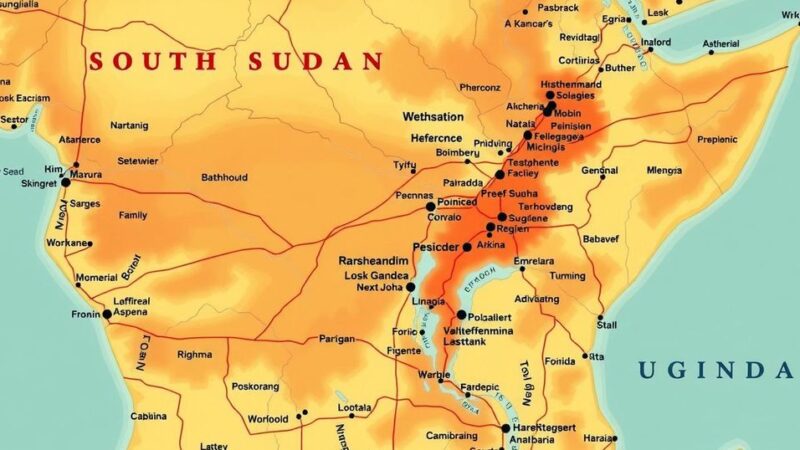Egypt and Jordan officials offered Syrian President Assad a transition option to leave Syria and form an interim council with opposition members, which has been denied by Jordan. As the conflict escalates, with rebels advancing in Idlib, Homs remains pivotal for the Assad regime’s survival, prompting grave concerns over regional stability.
Recent reports indicate that officials from Egypt and Jordan proposed to Syrian President Bashar al-Assad the possibility of his departure from Syria in exchange for the establishment of an interim council featuring opposition members, according to The Wall Street Journal. However, the Jordanian Embassy in the United States has denied these claims. As of December 6, Assad remains in Syria amidst mounting concerns from various Arab nations regarding the potential collapse of his government and the ensuing regional instability.
With Homs being the last significant city under government control, its loss would significantly compromise Assad’s access to coastal regions predominantly inhabited by the Alawite minority that supports him. Jerome Drevon, a senior analyst at the International Crisis Group, noted, “If Homs falls, I don’t see how the regime will be able to survive.”
Meanwhile, Syrian rebels, particularly those in Idlib province, have intensified their offensive, capturing several strategic locations. This militant action involves the Hayat Tahrir al-Sham group, which is classified as a terrorist organization in Russia, along with elements of the Syrian National Army. In response, the Russian military has conducted airstrikes targeting the militants’ strongholds and supply routes.
Furthermore, reports indicated a recent retreat of Syrian troops from Hama, a population center housing approximately half a million residents, which the Syrian command has justified as a tactical maneuver aimed at preserving civilian life.
The ongoing civil conflict in Syria has led to a fragile situation for the Assad regime, which is facing increasing pressure both internally from opposition forces and externally from various regional actors. The implications of potential territorial losses, particularly of strategic cities such as Homs, pose grave threats to the government’s stability. Various Arab nations, including Qatar and the UAE, have expressed concerns regarding the potential for broader destabilization in the region should Assad be forced from power, prompting discussions about forming a transitional governing body inclusive of opposition representatives.
In summary, the situation in Syria remains precarious as President Bashar al-Assad faces potential offers of transition from regional powers amid increased military pressure from rebel factions. The loss of crucial cities like Homs could undermine the regime’s control and access to key territories, raising critical questions about the sustainability of Assad’s government. The need for robust international dialogue and strategizing to avert a full-scale collapse is more pressing than ever.
Original Source: eadaily.com






